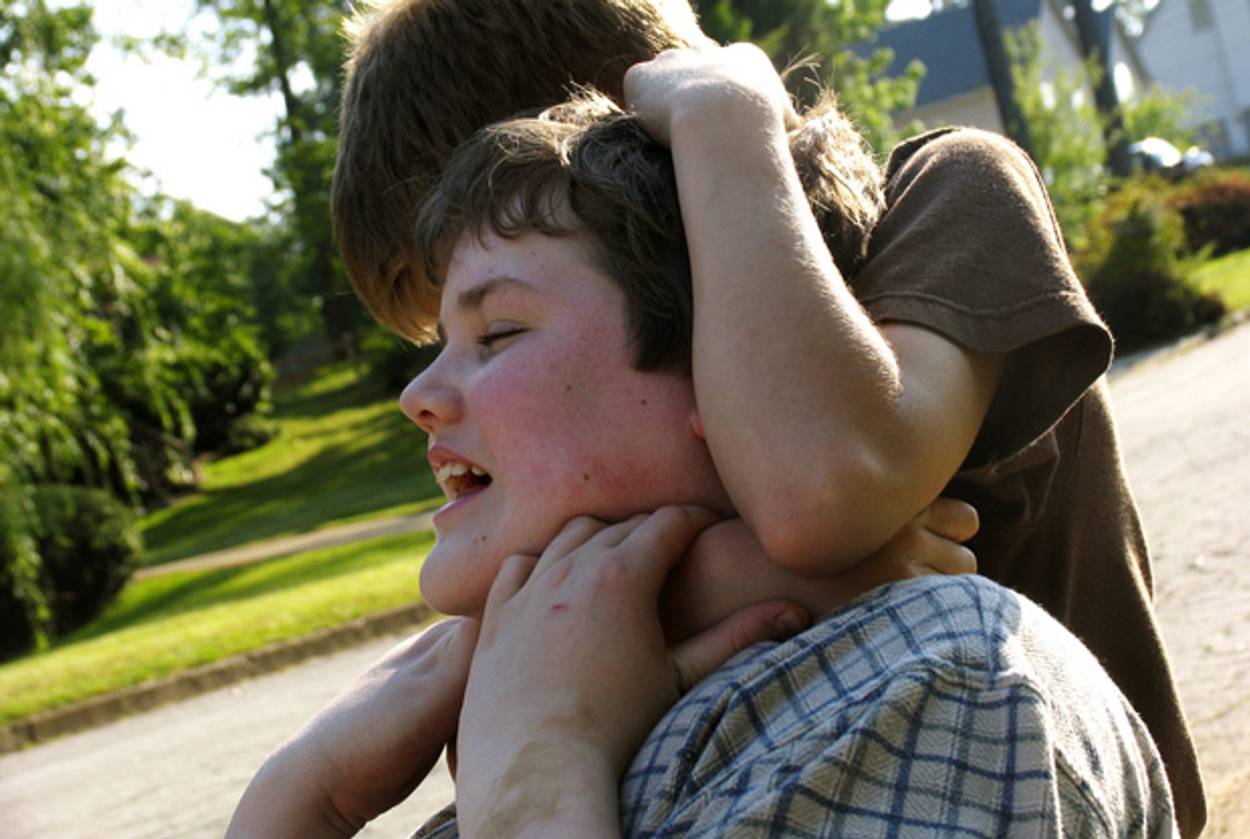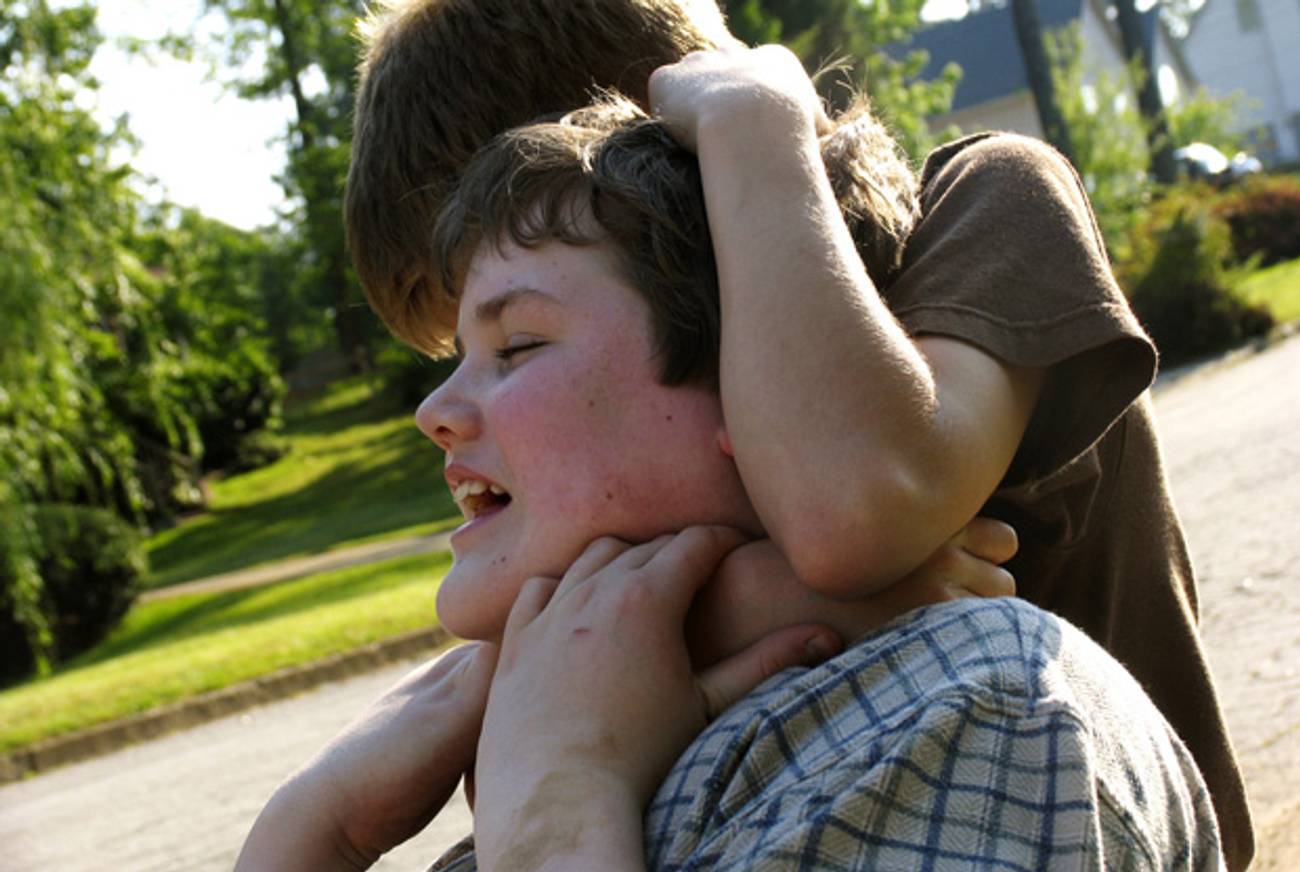Born To Bully
Instead of preaching kindness, we should realize, as the Bible did long ago, that we’re all bullies—and that the best advice is to give in to that reality




These are tough times for the American bully.
Last week, after a young man opened fire in his Ohio high school, killing three classmates and wounding two, renowned scholars of adolescent psychology such as Charlie Rose and Marlo Thomas were quick to prognosticate and assert that the alleged shooter, the gawky T.J. Lane, was just a bullied kid taking bloody revenge on his tormenters. That the theory turned out to be utterly false did little to satisfy the national hunger for bully-flavored sanctimony. Speaking at Harvard University, Lady Gaga unveiled a foundation dedicated to nurturing a more congenial environment in school, aided by the Secretary of Health and Human Services, Kathleen Sebelius, and by society’s Empress Emerita herself, Oprah Winfrey. The singer decided to start the foundation, she said, because she had been a victim of bullying, and she hoped the foundation would help make kids kinder to each other.
Gaga is sweet, but she’s misguided. The problem is not what to do to defang the bully, but what to do to galvanize his victims. The answer is simple, stark, unfashionable: Teach victims to hit back and hit hard.
I learned this lesson at 6. A boy, a year or two older, approached me in the schoolyard and demanded that I meet him the following day and surrender a particular Star Wars action figure he knew I had in my possession. If I refused, he said while gently rapping his knuckles against my cheekbones, my well-being would not be guaranteed. As he looked a lot like those giant walrus-apes in the trailer for John Carter, I was inclined to comply. That night, I sheepishly confessed my defeat to my father. What followed were words to live by: Without a trace of emotion in his voice, my father instructed me to go to school the following day, face the aggressor, and unleash upon him every bit of terrible violence and holy rage I could muster.
I did. The bully, nose broken, blood dribbling down his chin, lay in the dirt. I was expelled for a few days but then returned to school triumphant. The bully had little unkind to say to me thereafter. Nor, for that matter, did anyone else.
Occasionally, at dinner parties, I’ll share this story with my friends, and they, especially those who have children old enough to face a similar situation, will rebuke me for my appalling behavior, remind me that violence is never the answer, lecture me about vicious cycles and grim consequences, and overall imply that I might feel more comfortable taking the remainder of my meal out in the street, along with the rest of those roughs who were driven to howling by misfortune and madness. In response, I generally sip my wine and quote my Proverbs: “Fear of man will prove to be a snare, but whoever trusts in the Lord is kept safe.”
You can see this attitude in action in many of the Good Book’s numerous accounts of bullying. When Joseph, our most celebrated victim of bullying, was tossed into a cistern and sold to itinerant Ishmaelites, he emerged empowered and took his revenge, submitting his brothers to a protracted power play and asserting his primacy by flaunting his might.
One can hardly resist imagining what Gaga might have advised our multicolored-coated patriarch. Judging from her foundation’s mission statement, she might have spoken of the need for “creating a safe community that helps connect young people with the skills and opportunities they need to build a braver, kinder world.” And she’s right. But these skills, as Joseph learned the hard way, involve the ability to do things like planting a silver chalice in his brothers’ possession and then holding one of them imprisoned for a spell until he could reveal his true identity and forgive them their past wickedness. In doing so, Joseph was not merely taking revenge, but had struck back and corrected the basic balance of power between himself and his brothers. Only then could reconciliation begin.
And yet, when we talk about bullying, we reserve most of our vim and vitriol for the perpetrators, motivated by the belief that these cruel ogres can somehow be reformed. They cannot. The desire to torment the other, to harass those different than us, to lord it over the weak is all too human. It’s worth remembering here that Joseph’s brothers are the men from whose loins sprang the tribes of Israel—which is to say, to an extent they are the progenitors of most of the people who are likely reading this article. Like them, we too have it in us to be terrible meanies. Suppress that urge, and you deny us our natural birthright.
Which, of course, isn’t to advocate brutalities. Limits must be observed. But attempting to make children preternaturally nice to one another is very much like trying to convince puppies to chew with their mouths closed—we may succeed, but we would have ruined what makes them such jolly beasts, and we would certainly impede their growth. Children grow in part by testing the boundaries of their own abilities, and such testing is always applied vis-à-vis others. They tease and hit and threaten, some more maliciously than others, just to see what happens. If balance is kept, if the victim swings back, peace is restored. If not, a message is sent, clearer than the admonitions of a thousand teachers, that bullying is tremendously effective.
Rather than see bullies as abhorrent and in need of mending, let us realize, per our tradition, that they are us. And rather than forbid malice, let us instead teach our kids to strike back. They’ll be much happier if the biblical justice was allowed to prevail, unimpeded, in the schoolyard. After all, they were born this way.
Liel Leibovitz is a senior writer for Tablet Magazine and a host of the Unorthodox podcast.
Liel Leibovitz is editor-at-large for Tablet Magazine and a host of its weekly culture podcast Unorthodox and daily Talmud podcast Take One. He is the editor of Zionism: The Tablet Guide.